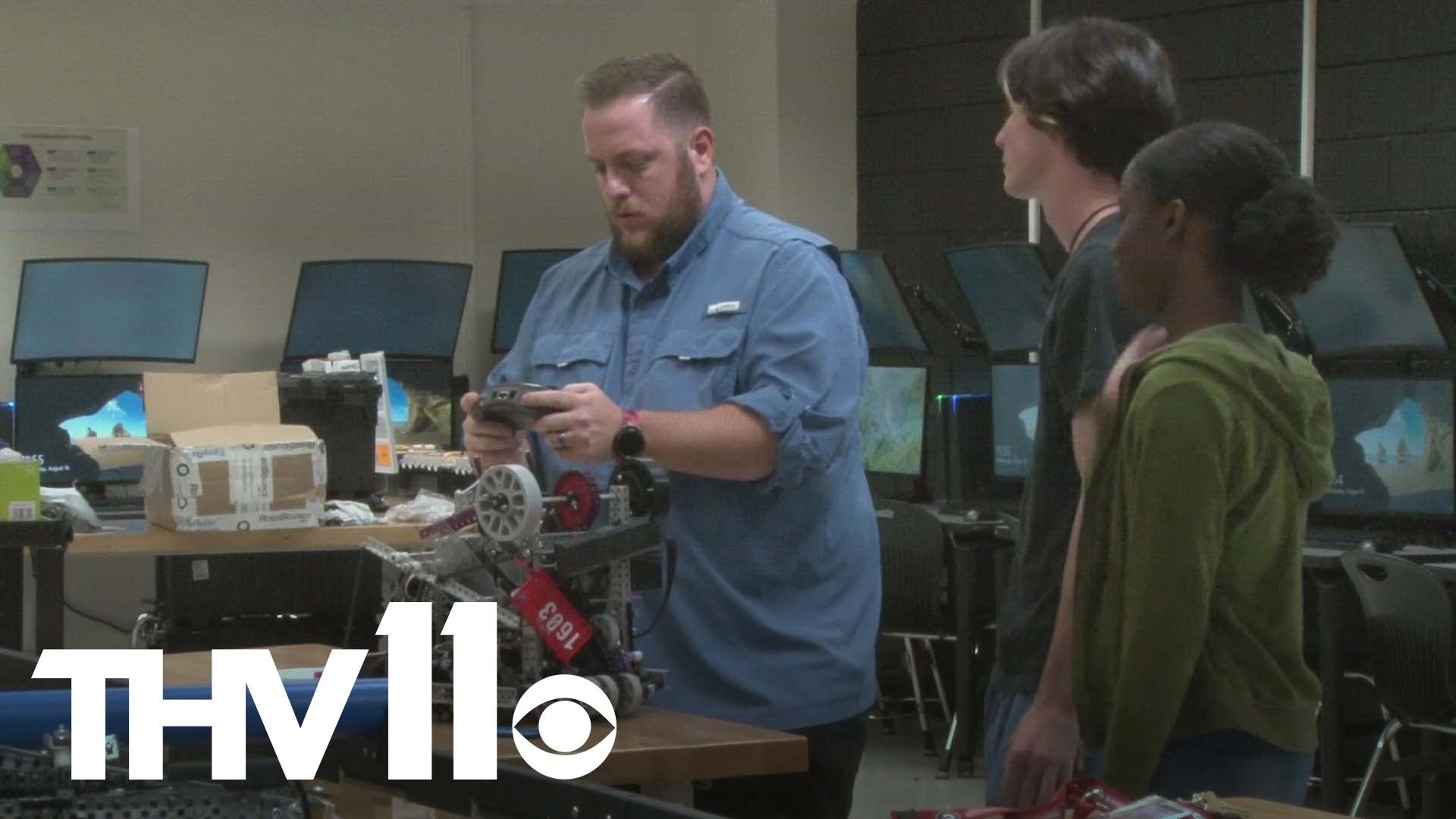CABOT, Ark. — During his time as governor, one of Asa Hutchinson’s biggest goals was the expansion of computer science courses in schools— 8 years after state law mandated schools offer computer science, where exactly are we today?
Andrea Patterson, a computer science teacher, starts with the essentials.
“We start with the very basics and there is certain syntax and certain code words you must use and commands you must use. That’s what we teach them,” she said.
Senior Ryan Croppi-White moved to Arkansas from Oregon. He’s currently taking Computer Science One as an introduction to coding where he hopes to use these skills to serve.
“I want to go into the military and the cybersecurity division, and I need a very good base for coding,” he described.
Once that base is established, the Cabot School of Innovation offers several courses in its computer science program.
Kayla Britton teaches level one cybersecurity among other classes. She said it's important “just making sure they have the confidence in computer programming, and they know that they already know more than most people.”
This may sound like a foreign language to some, but Senior Kaiba Ali broke it down into layman’s terms.
“It would be like taking multiplication after learning addition. You already have the math part of it. Now you’re just doing that in a loop almost,” explained Ali.
"Currently employment in Arkansas is 27,529 in the information technology career cluster with an average wage of $80,000. The field is expected to grow around 2% annually for the next 10 years," said Patrick Sawatsky, Arkansas Department of Education Business and Industry Coordinator.
Audrey Coleman and Brayden Baldwin are seniors on the award-winning Cabot Robotics team who said that they love what the team offers them.
"It was a big surprise how much fun I was having playing with toys in a way. It’s challenging and it’s fun," they described.
Their teacher Dylan Glover has been at the controls for nearly a decade and believes that Arkansas is at the forefront of computer science education.
“We have robotics all the way to the third grade now throughout all the elementary schools for the most part. When it comes to outlook in the future. Everything we have runs on computer science in some shape or form," Glover said.

